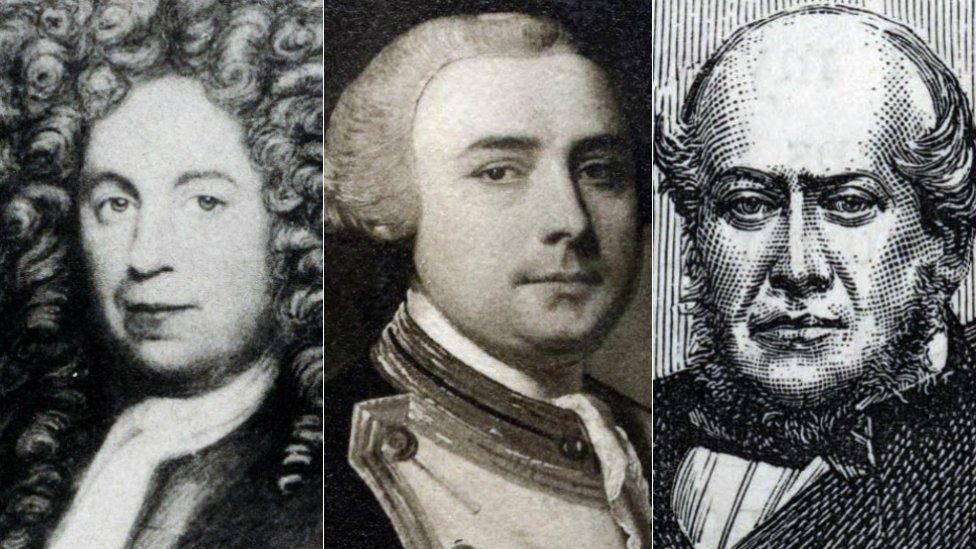Black Lives Matter protests: March held in Liverpool
- Published
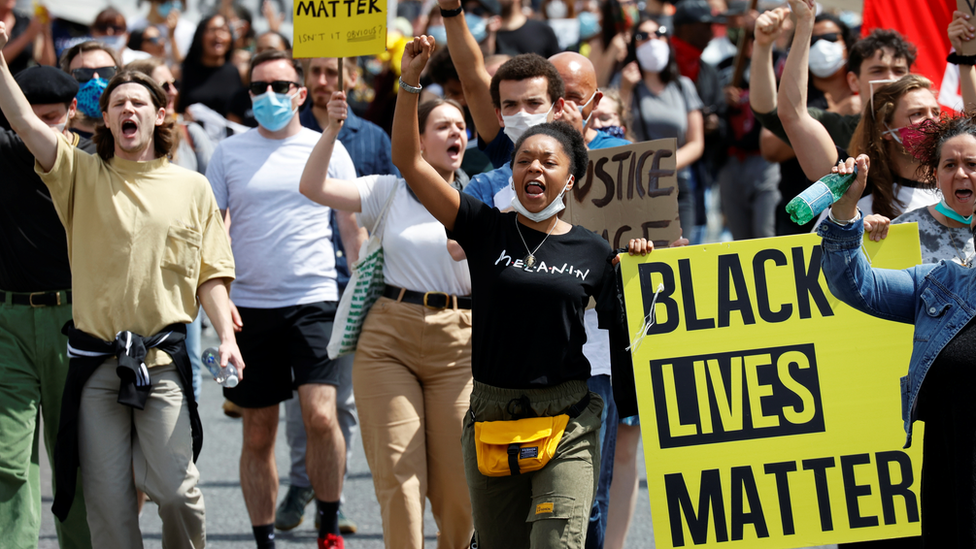
Organisers said the protest was part of a wider campaign against racism
Hundreds of people have marched in an anti-racism demonstration in Liverpool.
It is one of many protests in support of the Black Lives Matter movement, following the death of George Floyd in US police custody in May.
It has sparked debates and demonstrations worldwide about racism, with campaigners taking to the streets.
Kerry Nugent, who organised the Liverpool rally, said: "This is just the beginning of a wider campaign to challenge the evils of racism."
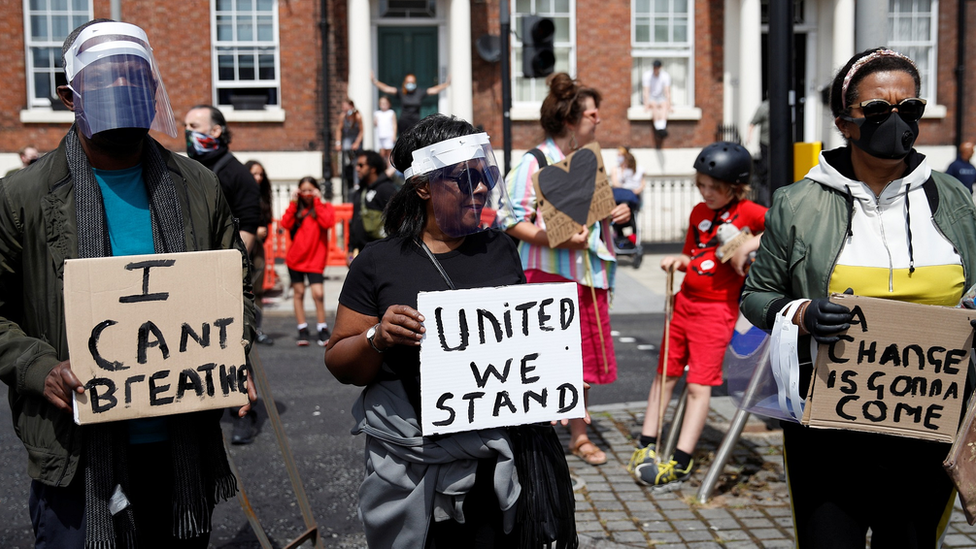
Organisers asked protesters to wear face coverings
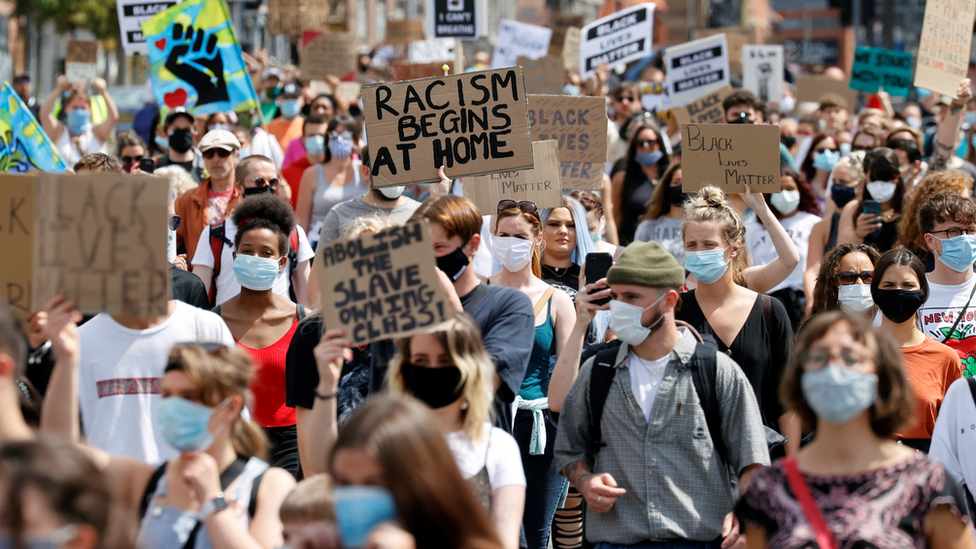
The Liverpool protest is of many across the UK this weekend
Many demonstrators wore face coverings to prevent the spread of coronavirus and kept 2m (6ft 6in) apart.
Liverpool was linked to the transatlantic slave trade, with its ships transporting about 1.5m slaves from Africa during the 18th and 19th Centuries.
It was Europe's most-used slave port by 1740 and many of its streets have names linked to slavery.
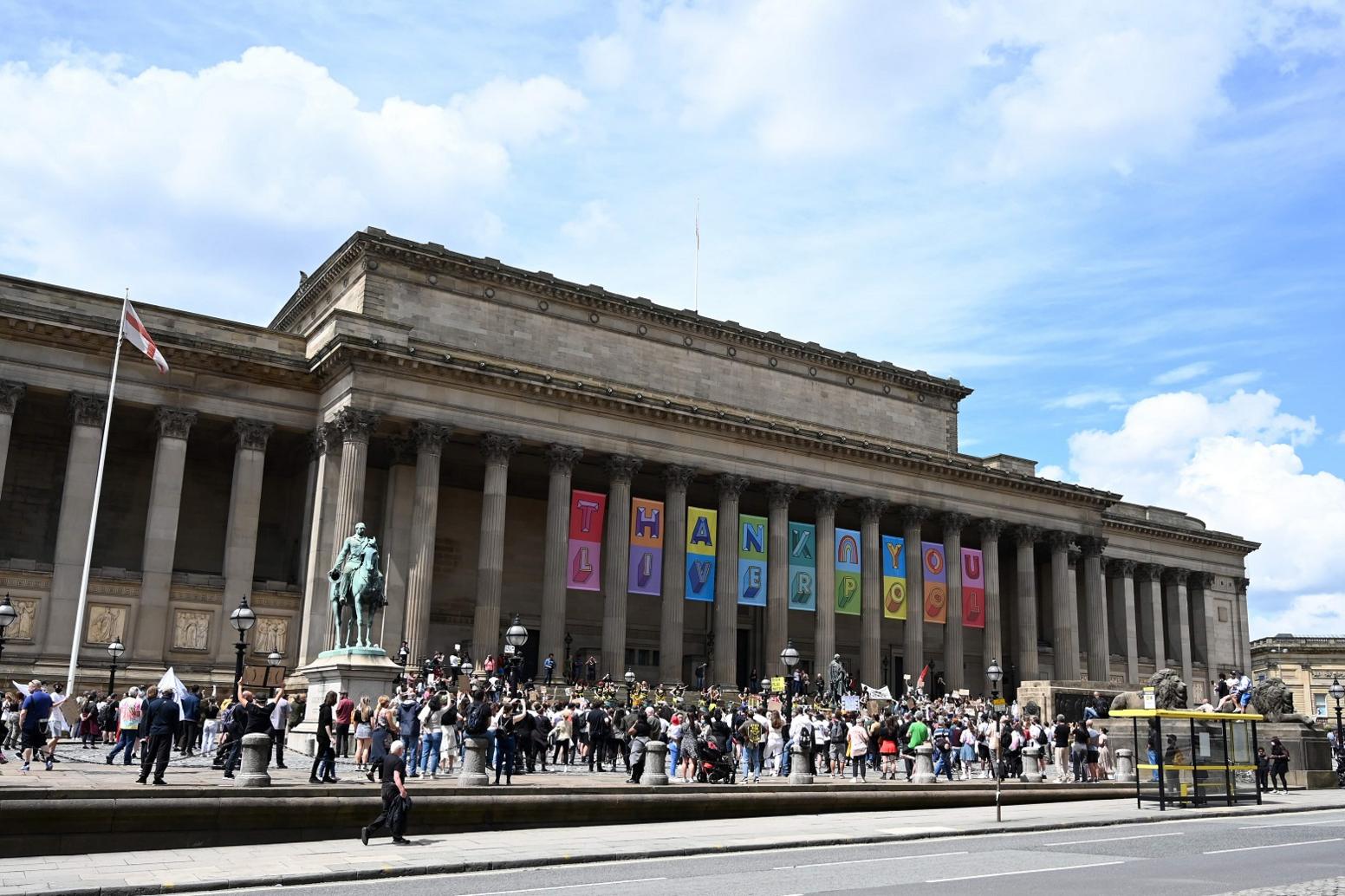
The march finished outside St George's Hall
Signs on the city's Penny Lane - immortalised in a song by The Beatles in 1967 - were defaced on Thursday over claims they were linked to 18th Century slave trader James Penny.
Protests in England
The city's International Slavery Museum said it was not certain whether the street was named after him, adding that "more research is needed" to clarify the origin.
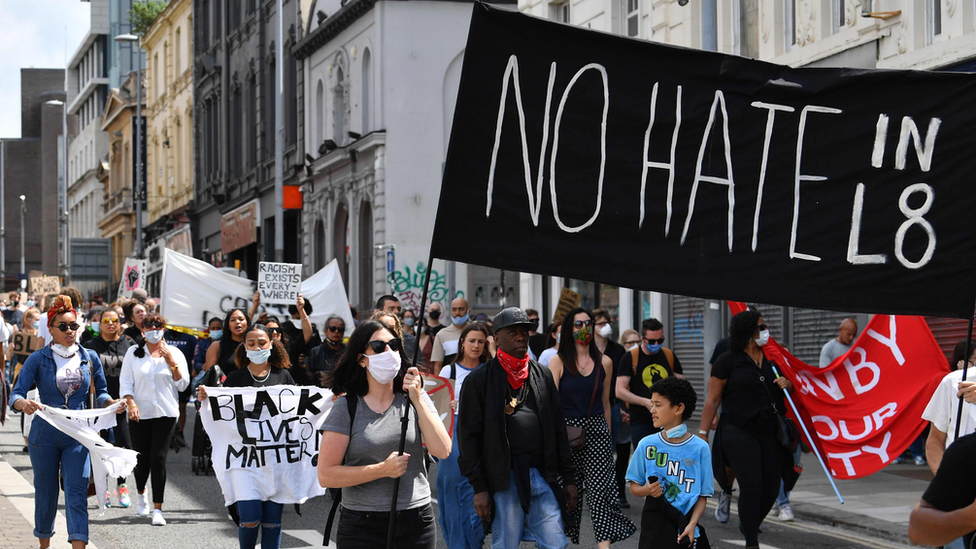
Demonstrators marched from Toxteth to the city centre
Mayor Joe Anderson said he was "frustrated" by the defacement, saying: "[It] does nothing to further advance the argument and the debate around Black Lives Matter here in Liverpool.
"It isn't just about the artefacts and street names, it's also about how we change the fundamental things that are causing disadvantage and inequality within our city."
Liverpool City Council was criticised by historian Laurence Westgaph earlier this week for "not doing enough" to acknowledge the city's links with slavery.
- Published12 June 2020
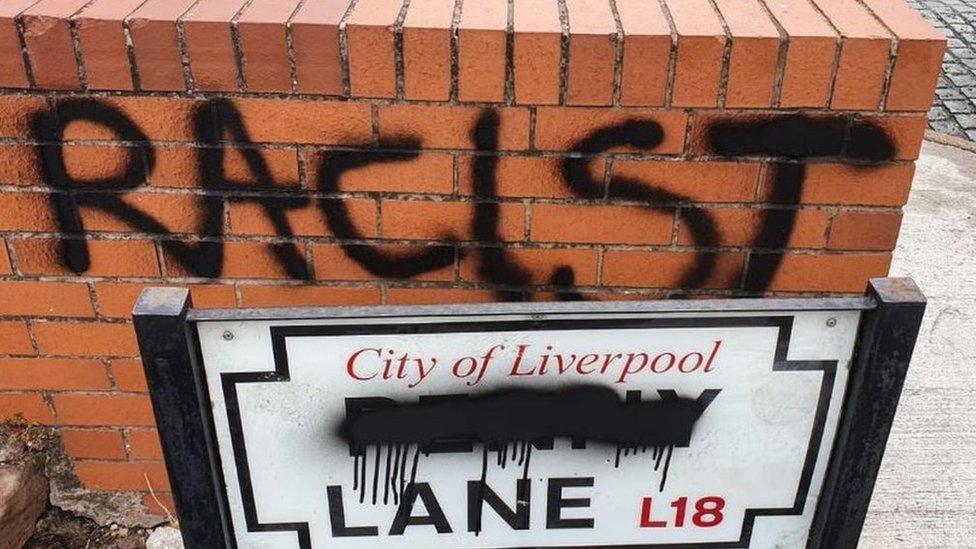
- Published15 January 2020
